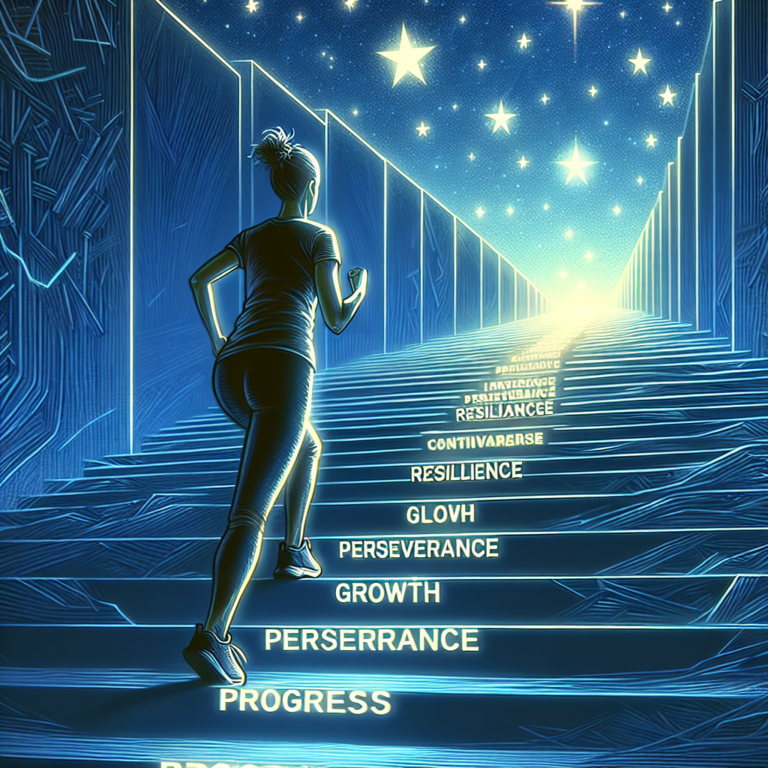
Dialogue Over Drama: Essential Communication Skills for Effective Conflict Resolution
Introduction
In a world rife with misunderstandings, hurt feelings, and conflict, the ability to navigate tough conversations is more important than ever. The phrase "Dialogue Over Drama: Effective Communication Skills for Conflict Resolution" serves as a reminder that constructive dialogue can triumph over the chaos of emotional drama. Whether at work, in relationships, or within communities, effectively handling conflict is a skill that can lead to profound improvements in relationships and outcomes. By learning to engage in meaningful conversations rather than succumbing to the pitfalls of drama, we can enhance our problem-solving abilities and foster a more harmonious environment.
Understanding the Dynamics of Conflict
The Nature of Conflict
Conflict is an inherent part of human interaction. It arises when individuals have differing opinions, goals, or values. The crux of the matter lies not in conflict itself but in how we choose to address it. The equation is simple: engaging in dialogue, rather than indulging in drama, leads to effective conflict resolution.
The Difference Between Dialogue and Drama
Dialogue involves open, respectful communication aimed at understanding and resolving differences. In contrast, drama often includes blame, accusations, and emotional volatility, ultimately escalating the conflict rather than resolving it. By embracing the principles of dialogue over drama, we set the stage for constructive outcomes.
| Key Differences | Dialogue | Drama |
|---|---|---|
| Intent | Understanding and resolution | Escalation and blame |
| Tone | Respectful and calm | Hostile and charged |
| Outcome | Collaborative solutions | Increased tension and division |
| Focus | Issues and solutions | Individuals and personal attacks |
The Framework for Effective Communication
Active Listening: The Cornerstone of Dialogue
Active listening is crucial for fostering effective dialogue. It involves fully concentrating, understanding, responding, and remembering what is being said. Here are five techniques to enhance active listening skills:
- Maintain Eye Contact: Showing attentiveness through eye contact helps establish a connection.
- Nod and Provide Feedback: Use verbal affirmations like "I see" or "I understand" to indicate engagement.
- Avoid Interrupting: Let the speaker finish before responding, which shows respect for their perspective.
- Reflect and Clarify: Summarize what the speaker has said and ask clarifying questions to ensure understanding.
- Avoid Judgment: Listen without formulating a response until they have fully articulated their point.
Case Study: The Corporate Dispute
In a corporate setting, two team leaders clashed over project direction. After several heated exchanges filled with accusations, they decided to engage in dialogue. By practicing active listening, they acknowledged each other’s views, ultimately leading to a collaborative plan. This resulted in not only conflict resolution but also strengthened their professional relationship.
The Art of Empathy
Empathy is the ability to put ourselves in someone else’s shoes. In conflicts, showing empathy can de-escalate tensions. Instead of dismissing emotions, validating feelings demonstrates that we care about the other person’s experience.
Tips to Cultivate Empathy:
- Ask Open-Ended Questions: Encourage the other person to share their feelings and thoughts.
- Use “I” Statements: Frame your feelings without placing blame. For instance, say, “I feel overlooked when my ideas aren’t considered,” instead of “You never listen to me.”
- Acknowledge Feelings: Recognize the other person’s emotions and express understanding.
Case Study: The Family Disagreement
In a family dispute regarding financial responsibilities, one member felt unappreciated. By expressing empathy and using “I” statements, they transformed an emotionally charged argument into a constructive discussion, ultimately coming to an equitable agreement.
The Communication Process
Preparing for Difficult Conversations
Preparation is key. Before initiating a potentially heated conversation, consider:
- Setting a Positive Environment: Choose a neutral and comfortable space for the discussion.
- Establishing Ground Rules: Agree on key points like allowing each other to speak uninterrupted.
- Identifying Desired Outcomes: Clearly define what you hope to achieve from the conversation.
Strategies for Constructive Dialogue
- Stay Focused on the Issue: Keep the discussion on the topic at hand; avoid bringing up past grievances.
- Set Time Limits: Prevent discussions from dragging on and causing frustration.
- Use a Mediator if Necessary: Sometimes, involving a neutral third-party can help facilitate a more productive dialogue.
Case Study: The Community Conflict
A town hall meeting about park renovations turned into a heated debate among residents. With a mediator facilitating the conversation and adhering to ground rules, residents expressed their concerns respectfully. Ultimately, their collaborative approach led to a well-received plan for renovation.
Navigating Emotional Triggers
Emotions can hijack a conversation, leading to drama instead of dialogue. To navigate emotional triggers:
- Recognize Your Own Triggers: Be aware of what emotionally charges you and try to manage your reactions.
- Take Breaks if Needed: It’s okay to step back and take a moment if emotions escalate.
- Use Relaxation Techniques: Breathing exercises can help ground you during tense conversations.
Building Long-Term Skills for Conflict Resolution
Continuous Learning and Adaptation
Conflict resolution is not a one-time effort. It requires ongoing practice and adaptation of skills. Consider attending workshops or engaging in role-playing exercises to hone your communication abilities.
Table: Resources for Developing Communication Skills
| Type of Resource | Examples |
|---|---|
| Books | "Crucial Conversations" by Patterson, et al. |
| Online Courses | Coursera and LinkedIn Learning on Communication |
| Workshops | Local community centers often offer training. |
Seeking Professional Help
Sometimes, conflicts may require professional mediation or counseling. Engaging a trained mediator can bring perspective and aid in finding solutions when tensions are high.
Conclusion
Mastering the art of dialogue over drama is essential for effective conflict resolution. It empowers us to engage with empathy and understanding, turning potential confrontations into opportunities for growth and collaboration. By honing our communication skills, we not only resolve conflicts positively but also lay the foundation for healthier relationships moving forward.
In the words of Stephen Covey, "Seek first to understand, then to be understood." As we strive for resolution, may we continuously choose dialogue over drama, nurturing a compassionate and constructive communication landscape.
FAQs
What if the other person doesn’t want to engage in dialogue?
- It can be challenging when one party is unwilling to communicate. In such cases, try to express your desire for dialogue calmly and consider setting a time to revisit the conversation when both are more open.
How can I handle my emotions during conflict?
- Acknowledge your feelings without letting them dictate your responses. Techniques such as deep breathing and taking short breaks can help maintain composure during tense discussions.
What if dialogue leads to more drama?
- If dialogue escalates into drama, take a step back. Acknowledge the emotional state of the conversation and propose a break or a temporary halt to discussions, returning when both parties are calmer.
Is it okay to agree to disagree?
- Yes, sometimes reaching a full agreement isn’t possible. Agreeing to disagree can be a respectful solution if both parties feel heard.
- Can communication skills be learned?
- Absolutely! Communication is a skill that can be developed with practice. Engaging in workshops, reading books, and practicing active listening can significantly enhance your abilities.
By integrating the concepts of ‘Dialogue Over Drama: Effective Communication Skills for Conflict Resolution’ into our lives, we not only navigate through everyday conflicts but also contribute positively to our surroundings and relationships. Happy communicating!















